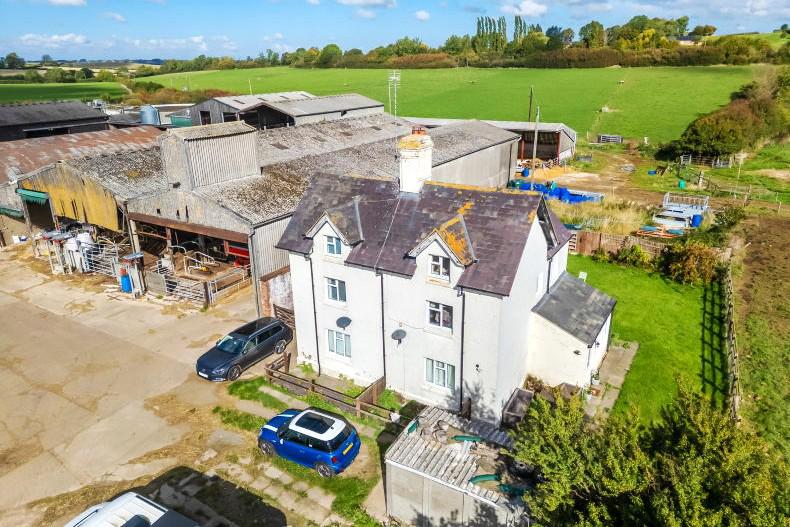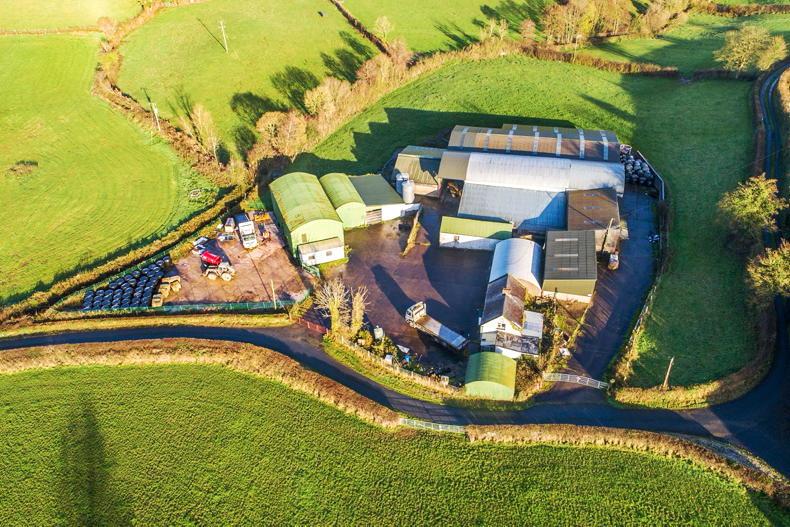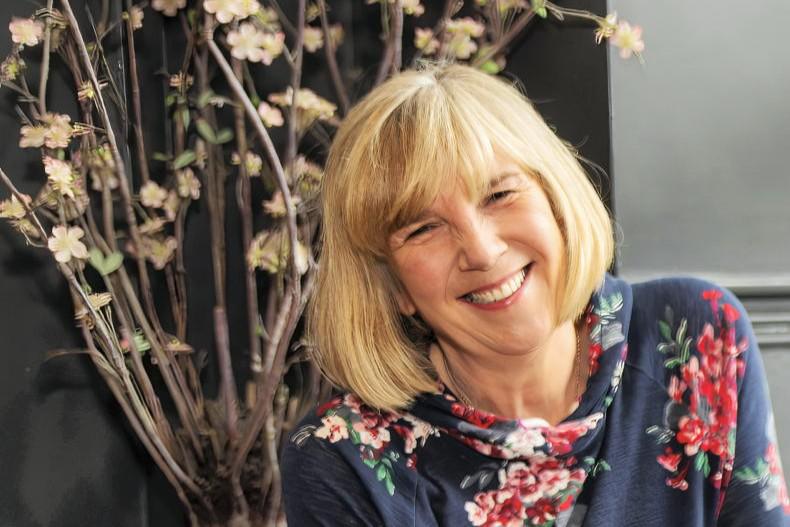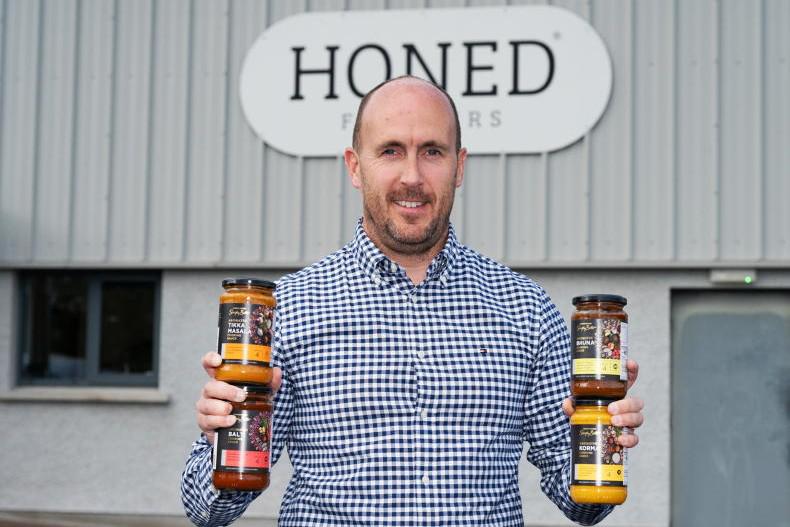Accustomed to the hustle and bustle of urban Dublin life, Leonie Vella was an unlikely but dedicated convert to the world of farming in January 2014.
While recovering from the biggest economic crisis in decades, and without any previous experience in the farming field, Leonie turned to sheep farming. In her mid-thirties with a BSc in computing, a steady career in interior design and her four-year-old son Luke to support, the move was high-risk and brave.
Leonie has taken on the enterprise previously run by husband Stephen in Carnew, Co Wicklow. Their flock of mainly Suffolk and Charlois sheep is now well over 200 in number. In the years since starting to farm, Leonie has expanded the flock yearly along with upgrading machinery and giving old infrastructure an upgrade.
Growing up was smooth for the daughter of an A&E consultant and a midwife. “Really I had quite a sheltered upbringing in south Dublin. My two brothers were 15 years older than me so I was well-minded. I was a true city girl, absolutely not a farmer,” Leonie reminisces.
Describing her family’s reaction when she first spoke of her plans to farm full-time she says: “They were bemused by it. They thought it was hilarious initially. But in recent times they have even come to the farm to help out; all hands on deck. I think that was their realisation of the intensity of farming.”

Leonie Vella runs a sheep farm in Carnew, Co Wicklow. \ Patrick Browne
Challenges
It was only when Stephen returned to a full-time job as an electrician that she considered stepping into her husband’s boots. Giving up her nine-to-five way of life meant she would now be a full-time shepherd, feeder, hairdresser, nurse and midwife to her flock. Bigger chores like dosing and foot bathing remain a team effort for Leonie and Stephen at the weekend.
“He was offered steady work, but there were over 250 sheep to look after. Something had to give, and I was always conscious of spending more time with Luke. So, I said: ‘Yeah that’s a great idea, I will be the full-time farmer’ – but I hadn’t a breeze,” she says.
The challenges that come with giving up a full-time job and abandoning your comfort zone are plentiful. “Nobody hands you a pay cheque at the end of the month to say: ‘Well done, good job!’
“Financial independence is tough too, as my husband is now the one bringing home the regular earnings,” Leonie admits.
Further challenges such as expenses, physical strain and loneliness are even more challenging for the recently converted farmer.
“It is really lonely. Starting out, I felt very deprived of human contact. It was a totally new experience and I was doing it on my own, thrown into it. I realised quickly that there were allies I needed to make and I did that through social media. I got talking to people on Twitter and that’s how I came across the South East Women in Farming Group,” she explains.
Communication
Leonie emphasises the importance of communication in the farming community, but in particular for anyone who is new to the game.
To combat isolation, bewilderment and disheartenment, she encourages people to reach out and talk. Help from Leonie’s mother and father in-law, along with her neighbours, also made the adjustment from an interior to exterior world more bearable.
Plans for the future are up in the air at the moment for Leonie and her flock. Recent climatic changes have had a huge impact on the enterprise, with transition periods and required adjustments lengthening Leonie’s to-do list.
So, downsizing numbers is a probability. However, Leonie is thinking constantly about potential future projects and looks forward to her continued life on the farm.
Advice from Leonie is heartfelt, as the once-city slicker empathises with women who would love to farm, but do not feel it’s possible.
Nobody hands you a pay cheque at the end of the month to say: ‘Well done, good job'
“Start by talking. Send a message to any of the women in farming groups nationwide and we would be delighted to talk. Where you learn most is where you are talking to like-minded people,” she offers. Leonie has well and truly ruffled the ‘farmer’s wife’ stereotype and its limitations, as she goes to the local mart regularly.
“I just took it upon myself to face it and learn the ropes. It’s obviously male-dominated and at the start that wasn’t easy but I kept going back, despite the looks and whispers and now they know exactly who I am,” she says.
Acknowledging the misrepresentation and lack of visible women in Irish farming, Leonie believes that “women tend to just get on with things.”
“They don’t ask for rewards,” she says. “Saying things like:, ‘I help at home when it is needed’ instead of ‘I farm, cook, clean, do the books and mind my children’ lead to under appreciation. Women need to make their own voices heard.
“Educating and empowering is key. When women get together, they tend to talk and be more open about their problems. This is powerful.”
Read more
Meet the woman who hatched her egg business
Meet Anna Syme: Women & Ag runner up
Accustomed to the hustle and bustle of urban Dublin life, Leonie Vella was an unlikely but dedicated convert to the world of farming in January 2014.
While recovering from the biggest economic crisis in decades, and without any previous experience in the farming field, Leonie turned to sheep farming. In her mid-thirties with a BSc in computing, a steady career in interior design and her four-year-old son Luke to support, the move was high-risk and brave.
Leonie has taken on the enterprise previously run by husband Stephen in Carnew, Co Wicklow. Their flock of mainly Suffolk and Charlois sheep is now well over 200 in number. In the years since starting to farm, Leonie has expanded the flock yearly along with upgrading machinery and giving old infrastructure an upgrade.
Growing up was smooth for the daughter of an A&E consultant and a midwife. “Really I had quite a sheltered upbringing in south Dublin. My two brothers were 15 years older than me so I was well-minded. I was a true city girl, absolutely not a farmer,” Leonie reminisces.
Describing her family’s reaction when she first spoke of her plans to farm full-time she says: “They were bemused by it. They thought it was hilarious initially. But in recent times they have even come to the farm to help out; all hands on deck. I think that was their realisation of the intensity of farming.”

Leonie Vella runs a sheep farm in Carnew, Co Wicklow. \ Patrick Browne
Challenges
It was only when Stephen returned to a full-time job as an electrician that she considered stepping into her husband’s boots. Giving up her nine-to-five way of life meant she would now be a full-time shepherd, feeder, hairdresser, nurse and midwife to her flock. Bigger chores like dosing and foot bathing remain a team effort for Leonie and Stephen at the weekend.
“He was offered steady work, but there were over 250 sheep to look after. Something had to give, and I was always conscious of spending more time with Luke. So, I said: ‘Yeah that’s a great idea, I will be the full-time farmer’ – but I hadn’t a breeze,” she says.
The challenges that come with giving up a full-time job and abandoning your comfort zone are plentiful. “Nobody hands you a pay cheque at the end of the month to say: ‘Well done, good job!’
“Financial independence is tough too, as my husband is now the one bringing home the regular earnings,” Leonie admits.
Further challenges such as expenses, physical strain and loneliness are even more challenging for the recently converted farmer.
“It is really lonely. Starting out, I felt very deprived of human contact. It was a totally new experience and I was doing it on my own, thrown into it. I realised quickly that there were allies I needed to make and I did that through social media. I got talking to people on Twitter and that’s how I came across the South East Women in Farming Group,” she explains.
Communication
Leonie emphasises the importance of communication in the farming community, but in particular for anyone who is new to the game.
To combat isolation, bewilderment and disheartenment, she encourages people to reach out and talk. Help from Leonie’s mother and father in-law, along with her neighbours, also made the adjustment from an interior to exterior world more bearable.
Plans for the future are up in the air at the moment for Leonie and her flock. Recent climatic changes have had a huge impact on the enterprise, with transition periods and required adjustments lengthening Leonie’s to-do list.
So, downsizing numbers is a probability. However, Leonie is thinking constantly about potential future projects and looks forward to her continued life on the farm.
Advice from Leonie is heartfelt, as the once-city slicker empathises with women who would love to farm, but do not feel it’s possible.
Nobody hands you a pay cheque at the end of the month to say: ‘Well done, good job'
“Start by talking. Send a message to any of the women in farming groups nationwide and we would be delighted to talk. Where you learn most is where you are talking to like-minded people,” she offers. Leonie has well and truly ruffled the ‘farmer’s wife’ stereotype and its limitations, as she goes to the local mart regularly.
“I just took it upon myself to face it and learn the ropes. It’s obviously male-dominated and at the start that wasn’t easy but I kept going back, despite the looks and whispers and now they know exactly who I am,” she says.
Acknowledging the misrepresentation and lack of visible women in Irish farming, Leonie believes that “women tend to just get on with things.”
“They don’t ask for rewards,” she says. “Saying things like:, ‘I help at home when it is needed’ instead of ‘I farm, cook, clean, do the books and mind my children’ lead to under appreciation. Women need to make their own voices heard.
“Educating and empowering is key. When women get together, they tend to talk and be more open about their problems. This is powerful.”
Read more
Meet the woman who hatched her egg business
Meet Anna Syme: Women & Ag runner up











SHARING OPTIONS